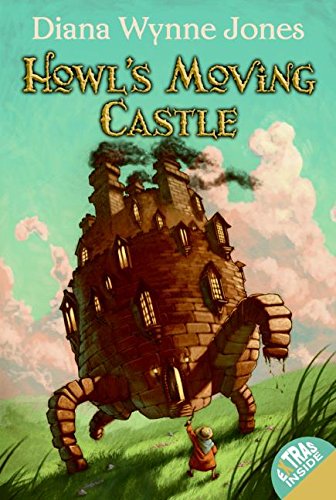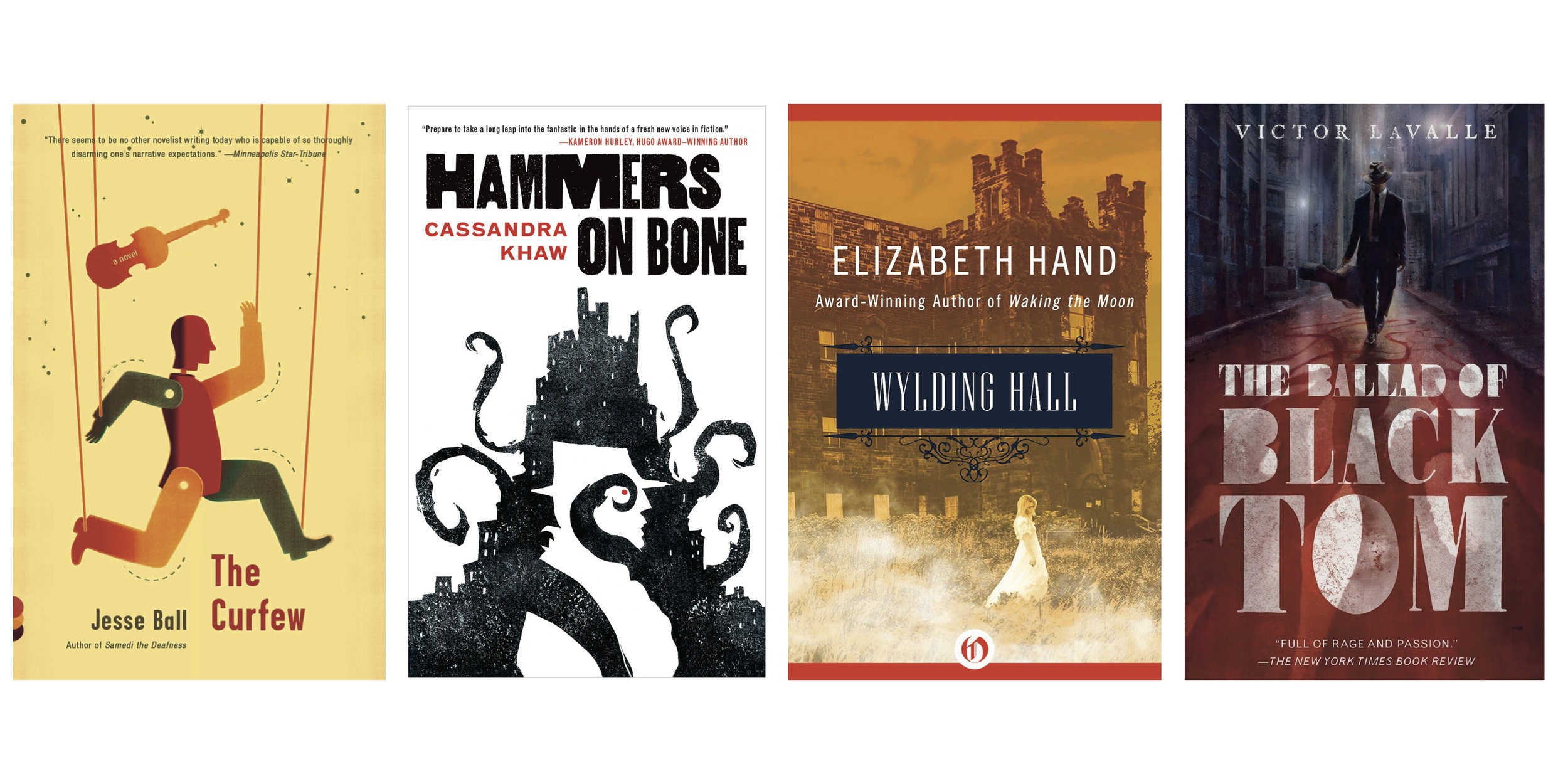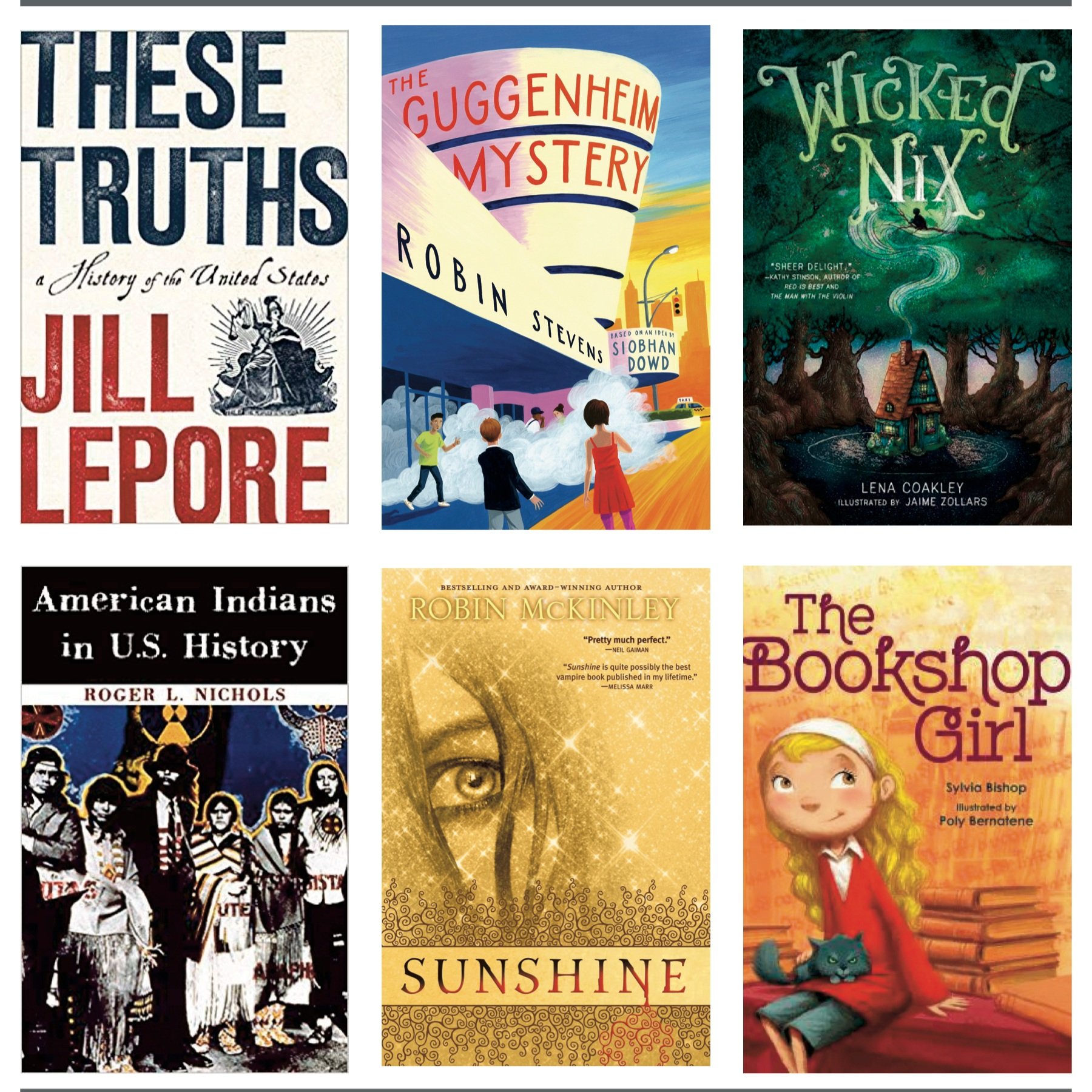Library Chicken: We're Back! And the Best Books of 2019 So Far
Welcome to the weekly round-up of what the BookNerd is reading and how many points I scored (or lost) in Library Chicken. To recap, you get a point for returning a library book that you’ve read, you lose a point for returning a book unread, and while returning a book past the due date is technically legal, you do lose half a point. If you want to play along, leave your score in the comments!
HEY GUYS, I’M BACK! Did you miss me? I missed you! I thought about asking Amy to commission a zombified back-from-the-grave version of the Library Chicken logo (which would be AWESOME, am I right?) but then I thought maybe not. Also — and I blame this entirely on the current political situation — I think about a zombie apocalypse waaaay too much.
I hope that your 2019 has been wonderful so far and you have been busily checking books off your to-read list. To get us back in the groove, I thought I’d start out with my own Best of 2019 So Far list.
Howl’s Moving Castle by Diana Wynne Jones
The Haunting of Hill House by Shirley Jackson
The Grand Sophy by Georgette Heyer
Part of self-care for me is comfort reading: re-reading old favorites. If you do a lot of comfort reading (ahem), you may find that you need to at least temporarily retire some of those favorites that you nearly know by heart (Jane Austen, The Blue Sword by Robin McKinley, Sorcery and Cecelia by Patricia Wrede and Caroline Stevermer, P.G. Wodehouse, Dorothy Sayers) in favor of relative newbies. These are all on my nextgen comfort reading shelf.
London Falling by Paul Cornell
The Severed Streets by Paul Cornell
Who Killed Sherlock Holmes? by Paul Cornell
Paul Cornell is a talented author and screenwriter (he wrote the Doctor Who episodes “Father’s Day” and — one of my personal favorites — the two-parter “Human Nature/The Family of Blood”). In this series (The Shadow Police) we follow a modern day London detective squad that acquires special powers during a very strange case, allowing them to see the “shadow” London of magic and mystery that exists side-by-side with the everyday world. It’s a great combination of police procedural and urban fantasy, occasionally hard-boiled and dark (the first book, London Falling, involves child-murder) with a dash of weird humor (a witch who kills soccer players who score goals against her favorite team). Very much UNfortunately, according to Cornell, this supposed-to-be-five-books series has been dropped by the publisher, so it’s possible we will never get to see the very end of the story arc. That said, if book three, Who Killed Sherlock Holmes?, does end up being the last one, it is not a bad wrap-up for the series (most of the urgent plot points are dealt with), which is still very much worth reading.
A Cure for Suicide by Jesse Ball
Census by Jesse Ball
How to Set a Fire and Why by Jesse Ball
Jesse Ball is weird and wonderful and I don’t know what he’s doing half the time but I’m totally fine with it. In A Cure for Suicide, we’re transported to a carefully constructed village where people who want to leave their lives behind are taught to live again after having their memories wiped. Census follows a father, recently diagnosed with a terminal disease, and his young son on a journey as census-takers through a world that is not quite our own. How to Set a Fire and Why, a coming-of-age story about a teenage girl with a tragic past (and, almost certainly, a tragic future) is the most mainstream (and perhaps the saddest) work of his that I’ve read.
Wolf in White Van by John Darnielle
I read this immediately following How to Set a Fire and Why, which turned out to be one of those happenstance pairings that works really well. Our narrator, Sean, has severe physical handicaps as the result of an “accident” when he was in high school. He now runs a by-mail adventure game, which has unexpectedly led to tragedy for some of his players. It’s a short novel, but there’s so much good stuff going on here that I look forward to revisiting it some time in the future.
Confessions of the Fox: A Novel by Jordy Rosenberg
This is the bizarre and wonderful story of notorious 18th-century London thief Jack Sheppard, told in parallel via footnotes (I LOVE STORY-TELLING IN FOOTNOTES GIVE THEM ALL TO ME) with the story of the professor who found the mysterious manuscript detailing Jack’s true history (turns out he’s transgender, among other things). It’s weird and compelling and (SPOILER) there is a LOT of explicit sex, which can sometimes turn me off a book (that’s just me) but didn’t bother me here.
Charles and Emma: The Darwins’ Leap of Faith by Deborah Heiligman
We’re doing biology in the high school and middle school this year, which means I’ve been reading up on Darwin. This nonfiction biography of the Darwins’ marriage (aimed at the YA audience, I believe, but certainly enjoyable for adult readers) shows the challenges and complexities of their relationship, which was long-lasting and, by all accounts, incredibly successful. I love reading about all the Victorians, but Darwin — who was apparently a quite decent and loving human being! — is one of my very favorites.
Anne Frank: The Book, the Life, the Afterlife by Francine Prose
I believe that everyone should read The Diary of a Young Girl by Anne Frank at some point (I prefer The Definitive Edition, edited by Mirjam Pressler and published 1991), and this is the year for my middle school students, since we’re covering the 1930s and World War II in history class. Francine Prose (Reading Like a Writer) explores the diary as a piece of serious literature, along with the history of its publication and popularity, and the (surprisingly!) scandalous production of the play and movie adaptations. This is a great companion to the diary for students and teachers, and a fascinating read in its own right.
The Worst Hard Time: The Untold Story of Those Who Survived the Great American Dust Bowl by Timothy Egan
More 1930s reading: companion book to the excellent American Experience documentary episode, Surviving the Dust Bowl. It’s hard to imagine what it must have been like to live through this ecological disaster, but Egan does a great job bringing it to life with first-hand accounts.
Traitor to His Class: The Privileged Life and Radical Presidency of Franklin Delano Roosevelt by H.W. Brands
No Ordinary Time: Franklin and Eleanor Roosevelt and the Home Front in World War II by Doris Kearns Goodwin
Eleanor Roosevelt, Volume One: 1894-1933 by Blanche Wiesen Cook
I may be a teensy bit obsessed with the Roosevelts, and this year I’m getting to indulge my obsession. These are all great accounts of Franklin and Eleanor and their complex relationship. I’ve got another stack of Roosevelt-reading next to the night stand; we’ll see how much I can get through before I have to start studying up for next year’s history class.
We Are Never Meeting in Real Life by Samantha Irby
Meaty by Samantha Irby
These two funny, compelling, and occasionally heart-breaking essay collections (by the author of the blog “bitches gotta eat”) cover a wide range of topics including dating, chronic illness, and tyrannical cats. Irby is currently working on the Hulu adaptation of Lindy West’s Shrill (another great book!) starring Aidy Bryant (so many talented women!).
...AND I’m starting fresh for the new year, even though the new year was some time ago, so:
Library Chicken Score for 3/15/19: 0
Running Score: 0
On the to-read/still-reading stack for next week:
Eleanor Roosevelt, Vol. 2: The Defining Years 1933-1938 by Blanche Wiesen Cook (I want to be Eleanor when I grow up)
All the Light We Cannot See by Anthony Doerr (everyone in the world has read this already, including my daughter who is very upset that it is taking me so long)
The Stranger Diaries by Elly Griffiths (don’t know much about it other than that it’s supposed to be a “gripping gothic thriller,” so yes, I’m in)
Pandemonium by Daryl Gregory (Spoonbenders was great, and this looks good too!)
(We’re Amazon affiliates, so if you purchase something through an Amazon link, we may receive a small percentage of the sale. Obviously this doesn’t influence what we recommend, and we link to places other than Amazon.)











































SUZANNE REZELMAN is home | school | life magazine’s Book Nerd. Subscribe to home/school/life to read her brilliant book recommendations and literary musings every issue. Your library list will thank you.